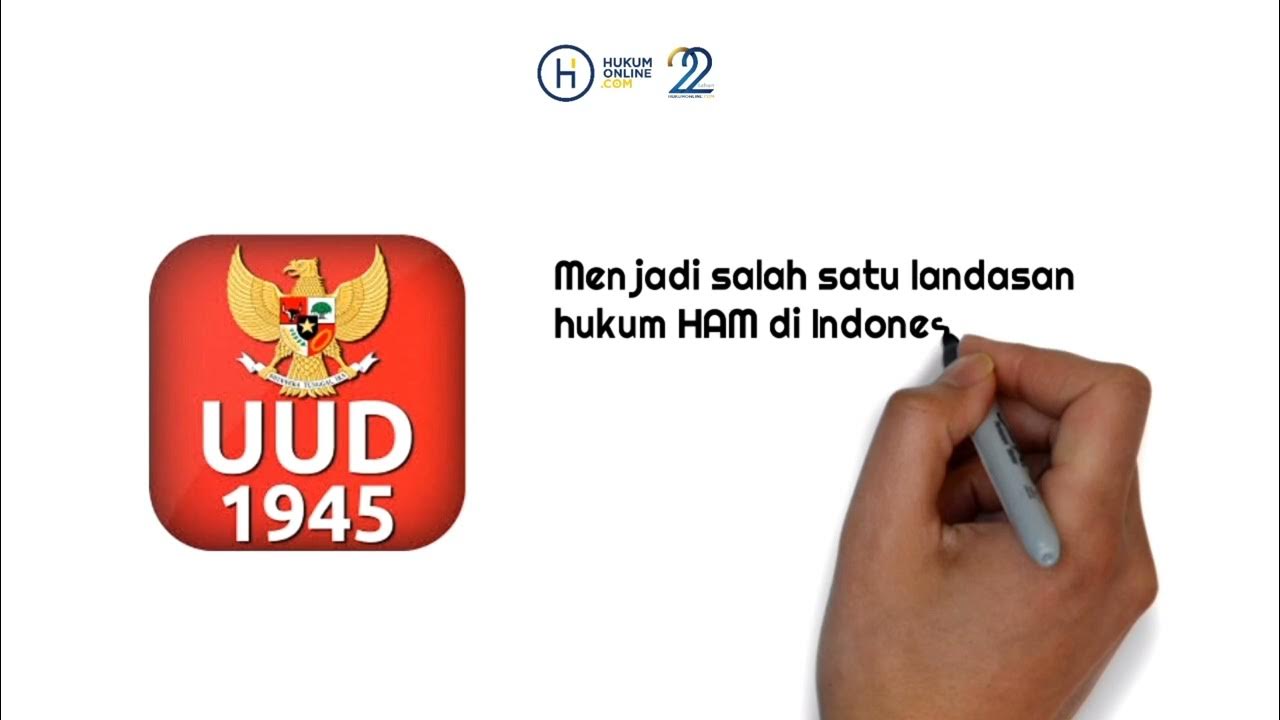Dr. Fithriatus Shalihah S.H., M.H. - Negara Hukum dan HAM
Summary
TLDRThis lecture explores the relationship between the rule of law and human rights, focusing on the role of the state in enforcing legal protections. It explains how the state’s legal framework ensures the safeguarding of individual freedoms, such as the right to practice religion, equality, and fair employment. Highlighting Indonesia as an example, the speaker emphasizes that a state governed by law must prioritize the protection of human rights, with laws that guarantee justice and equality. The key takeaway is that the rule of law exists to protect human rights, and the state has a duty to create laws that uphold these rights.
Takeaways
- 😀 The importance of the rule of law and human rights is central to creating a just society, where laws ensure balance and fairness.
- 😀 Legal definitions can vary depending on perspective, with distinctions between public law, private law, and international law.
- 😀 A key role of law is to regulate relationships between individuals, entities, and states, ensuring justice and fairness.
- 😀 A state has the authority to impose legal sanctions on individuals or entities that violate the law, ensuring the law’s enforcement.
- 😀 The concept of a 'rule of law' emphasizes the supremacy of law, equality before the law, and human rights protection as a primary goal.
- 😀 The state’s duty is to protect human rights, with a focus on ensuring that laws serve to safeguard these rights for all citizens.
- 😀 Indonesia is defined as a rule-of-law state, grounded in the principles of Pancasila and the 1945 Constitution, focusing on human rights and legal equality.
- 😀 The state must balance legal regulation with respect for personal freedoms, ensuring laws do not overstep into private matters while still offering protection.
- 😀 Human rights, as declared by the United Nations, are universal and must be safeguarded by all nations to prevent abuse and ensure dignity.
- 😀 Countries must create legal frameworks that protect workers’ rights, such as ensuring fair wages and work conditions, to prevent exploitation in the job market.
Q & A
What is the concept of a 'legal state' as explained in the lecture?
-A 'legal state' is a state that operates under the rule of law, where its actions and decisions are based on laws that ensure justice, equality, and the protection of human rights for all citizens.
How does the rule of law relate to human rights?
-The rule of law ensures that all individuals are treated equally under the law and that their human rights are protected. It creates a system where laws are applied fairly, guaranteeing justice and human dignity.
What is the main purpose of law in a 'legal state'?
-The main purpose of law in a legal state is to maintain balance and ensure that individuals' rights are respected, preventing abuses and guaranteeing justice for all members of society.
What are some key characteristics of a legal state as discussed in the transcript?
-Key characteristics include the supremacy of law, the guarantee of equality before the law, the protection of human rights, and the use of laws to ensure justice and order in society.
Why is the state considered to have the authority to impose sanctions?
-The state has the authority to impose sanctions because it possesses the legal power to enforce laws and ensure compliance. This includes penalizing those who violate laws to maintain order and protect citizens' rights.
What does the lecturer mean by 'human rights are innate and absolute'?
-Human rights are considered innate and absolute because they are fundamental rights that every individual is born with, not granted by the state, and must be protected universally without exception.
What role does Indonesia's Constitution play in human rights protection?
-Indonesia's Constitution, particularly through the principles of Pancasila, serves as the foundation for ensuring the protection of human rights. It outlines the legal framework that guarantees equality, justice, and respect for individual rights.
How does the state intervene in private matters, such as marriage or employment, according to the lecture?
-The state intervenes in private matters, like marriage and employment, to ensure legal protection and fairness. The intervention is not to infringe on personal rights but to maintain order, ensure justice, and protect individuals from exploitation or abuse.
What is the significance of the principle of 'equality before the law' in a legal state?
-The principle of 'equality before the law' ensures that all individuals, regardless of their status or background, are treated equally in the eyes of the law. No one is above the law, and everyone has the same legal rights and obligations.
How do human rights and the legal state concept relate to each other in the context of the lecture?
-Human rights and the legal state are closely linked because the legal state exists to protect and enforce human rights. The rule of law ensures that human rights are upheld through the creation and enforcement of laws that safeguard individual freedoms and dignity.
Outlines

This section is available to paid users only. Please upgrade to access this part.
Upgrade NowMindmap

This section is available to paid users only. Please upgrade to access this part.
Upgrade NowKeywords

This section is available to paid users only. Please upgrade to access this part.
Upgrade NowHighlights

This section is available to paid users only. Please upgrade to access this part.
Upgrade NowTranscripts

This section is available to paid users only. Please upgrade to access this part.
Upgrade NowBrowse More Related Video
5.0 / 5 (0 votes)





